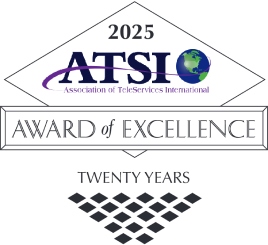In the healthcare industry, patient satisfaction is a primary focus. One of the most direct ways to influence that experience is through communication. A medical call center service is often the first point of contact between a patient and their provider, and this interaction sets the tone for their entire experience. As medical offices juggle numerous tasks, an efficient call center plays a pivotal role in streamlining operations, reducing patient stress, and ensuring quality care.
But not all call centers are the same. To enhance patient experience, healthcare call centers must follow best practices designed to optimize every patient interaction.
Personalized Patient Care with Professionalism
When patients reach out to a healthcare call center, they are seeking more than just answers—they want to feel heard and understood. Call center staff should greet each caller by name, ask clarifying questions when needed, and tailor responses to each patient’s unique needs.
Professionalism is equally important. Call center representatives should be well-trained in healthcare terminology, patient needs, and privacy requirements. They must approach each call with patience, empathy, and the ability to provide clear, accurate information. Patients should never feel rushed, and call center staff should be encouraged to actively listen and engage with patients on a human level.
HIPAA Compliance and Privacy
Privacy is a cornerstone of healthcare, and call centers must maintain strict compliance with the Health Insurance Portability and Accountability Act (HIPAA). Healthcare call center staff must be trained in handling sensitive patient information, including medical history, appointments, and personal contact details. This ensures that patient privacy is respected and maintained during every interaction.
Only hire 100% HIPAA-compliant medical call center services. This means that the technology they use for call recording, data storage, and transmission must be secure. Operators should also be well-versed in the protocols for managing patient data and how to handle situations that involve confidential information. Maintaining HIPAA compliance throughout all communication is essential to building trust and ensuring the confidentiality of patient details.
Efficient Call Handling
Efficiency is paramount in a healthcare call center. Patients don’t want to wait for long periods, and the call center should have systems in place to reduce hold times. Efficient call handling begins with the initial greeting and continues through to the resolution of the patient’s request. By using intelligent routing systems and call queuing, call centers can make sure patients are directed to the correct department or specialist promptly.
Trained operators should also be able to quickly assess the nature of the call and address the patient’s needs without delay. For example, if a patient is calling about a medication refill, the operator should be prepared to take the request and pass it on to the appropriate personnel without the patient needing to repeat themselves multiple times. MedConnectUSA has a 100% U.S.A.-based team and works from supervised offices, ensuring security, privacy, and professionalism.
Technology can also play a role in improving efficiency. Automated systems can handle routine tasks like appointment scheduling, while live operators focus on more complex issues. Using AI-assisted technologies that handle administrative work helps free up human resources to manage more sensitive calls, such as emergency inquiries or issues requiring in-depth medical knowledge.
24/7 Availability and After-Hours Support
Healthcare needs don’t fit neatly within a 9-to-5 schedule. Emergencies can happen at any time, and patients expect to be able to reach someone no matter the hour. 24/7 support is necessary for urgent care offices, medical practices with on-call physicians, or hospital systems where patients may need assistance after normal hours.
After-hours support should include live operators trained to handle emergency calls, forward messages to on-call personnel, and schedule urgent appointments. Using a call center that offers continuous coverage can help your practice avoid missed calls and frustrated patients. Not only does this increase patient satisfaction, but it also improves continuity of care by making sure that critical calls are addressed, even outside of regular office hours.
Appointment Scheduling and Reminders
One of the most common tasks for a healthcare call center is appointment scheduling. It’s an essential service that has a direct impact on the efficiency of a practice and the patient experience. Call center representatives should be familiar with the office’s scheduling system and be able to handle appointment bookings with ease.
A significant aspect of appointment scheduling is the confirmation process. Missed appointments are a common issue in healthcare settings, often resulting in inefficiency and financial loss. Best practices in healthcare call centers include sending appointment reminders to patients through automated systems, phone calls, or text messages. This simple step can dramatically reduce no-shows and make sure patients show up for their appointments.
Managing High Call Volumes
Healthcare offices are overwhelmed with call volume, especially during flu season, after a new promotion, or in the event of unexpected emergencies. Call centers need to be equipped to handle high call volumes without causing delays for patients. An efficient call center should have staff trained to handle a high number of calls, especially during busy periods. Call routing systems should allow for the effective distribution of calls so that no one is left waiting for too long.
For medical offices, outsourcing overflow calls during peak times is a great way to prevent long hold times. Whether it’s lunchtime, holidays, or the middle of the afternoon when your in-house team is busiest, outsourcing allows your team to focus on in-office tasks while the call center manages the call volume.
Consistent Training and Performance Monitoring
Healthcare call centers must have a robust training program for their staff. As they will be dealing with patients directly, it’s important that they know medical terminology, patient expectations, and the office’s internal procedures. Additionally, they must be well-versed in HIPAA compliance to maintain confidentiality throughout the call.
Ongoing training ensures that the operators are always up-to-date with the latest healthcare trends, technologies, and procedures. Regular performance monitoring is also vital. Metrics like average call length, hold times, and resolution rates can provide valuable insights into the effectiveness of the call center and areas for improvement. Supervisors should be trained to provide feedback to call center agents and foster a culture of continuous improvement.
Multilingual Support
As the patient base of healthcare providers continues to become more diverse, offering multilingual support has become important. A healthcare call center with multilingual capabilities allows patients to communicate in their preferred language, making the experience more accessible and inclusive.
Having bilingual operators can make a huge difference for non-English speaking patients who may otherwise feel isolated or uncomfortable communicating with a provider. Ensuring that language barriers don’t interfere with patient care builds trust and loyalty, which contributes to better overall outcomes for your practice.
Clear Communication and Call Scripting
In healthcare, communication is paramount. Call centers should utilize clear and effective call scripts that allow operators to answer patient questions, manage appointments, and assist with requests efficiently. The call script should be structured enough to guide the operator but flexible enough to address patient-specific needs.
Call scripting can be quite helpful when handling more complex or sensitive topics. From discussing insurance questions and medical procedures to providing follow-up instructions, clear communication helps prevent misunderstandings and provides patients with the information they need.
Integration with Practice Management Systems
A key component of successful healthcare call center outsourcing is seamless integration with your practice’s existing management systems. This includes appointment scheduling, patient record management, and billing systems. Integration ensures that your call center can handle tasks like rescheduling appointments or checking patient eligibility for services in real-time without needing to contact your office staff.
When the call center can access your practice management system, it can answer questions and manage requests more quickly, reducing wait times and improving overall efficiency. This integration also ensures that all information is up-to-date and consistent across your office and the call center, reducing the risk of errors or miscommunication.
Customizable Services for Different Healthcare Needs
Healthcare providers vary greatly in terms of services offered, patient demographics, and operational structure. A one-size-fits-all approach does not always work for every practice. An ideal healthcare call center should offer customizable services that meet the specific needs of your office.
If your practice is primarily concerned with scheduling, the call center should focus heavily on appointment management. For example, a cardiology answering service might need to have a deeper understanding of specific medical terminology. By customizing the service to match your practice, you’ll create a more efficient system that meets your exact needs.
MedConnectUSA: Reliable U.S.-Based Call Center Solutions for Medical Practices
The right healthcare call center can transform the patient experience, enhance operational efficiency, and alleviate stress on in-house staff. MedConnectUSA is the trusted partner for medical offices nationwide, offering 24/7 HIPAA-compliant answering services. With 35 years of experience, we specialize in delivering reliable, efficient call handling to ensure your patients always receive timely assistance.
Be it managing high call volumes during peak hours or providing after-hours support, our U.S.-based operators are trained to handle all aspects of medical office calls, from appointment scheduling to urgent inquiries. Contact us today to discover how our call center services can streamline your operations and improve patient satisfaction. Let MedConnectUSA help your practice thrive with professional, personalized support.





